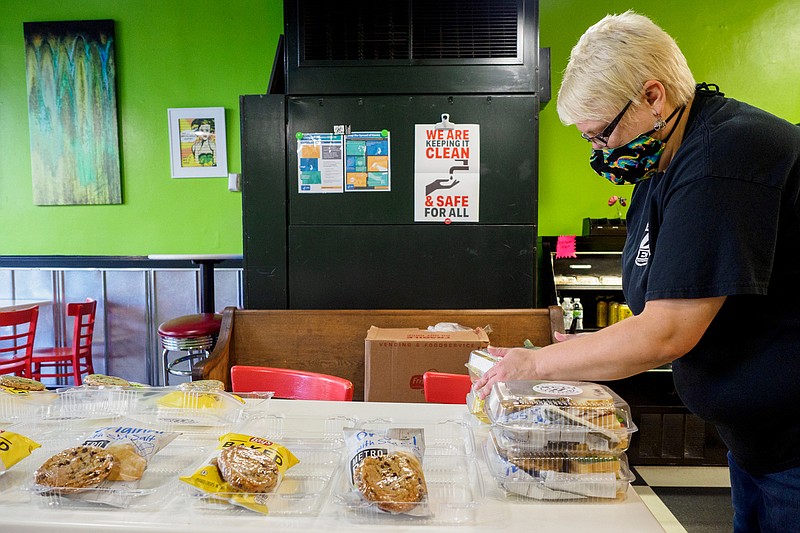Among the very first phone calls that I made after the coronavirus shutdown were to restaurateurs in our area. It's been eight months now and I've talked to some of those same people several times, as well as to many others in the industry.
I've also talked to a lot of folks in the music industry, and the two have provided what I think is a pretty good overview of this whole pandemic thing and how people have been dealing with it.
Both provide entertainment, and arguably sustenance.
One of the very first things that I learned from those early discussions was that this virus would have far-reaching ripple effects beyond anything that people could imagine. I remember one restaurant owner telling me that closing down restaurants would not just impact the waitstaff and cooks, but the guy who brought in the clean linen every week; and the food supplier; and even the garbage man who picked up the trash every week.
"There won't be any trash to pick up," he said.
That has certainly proven to be true. We've seen it in the music industry as well. It is not just the singer who stands in front of the microphone that has been impacted by the screeching halt of the live music industry (specifically the touring live music industry). The musicians - the drummers, the guitar players, the keyboard and bass players - have all also been largely without paychecks for these many months. But, so too have the guys who run the soundboards and the lights and drive the trucks full of gear.
In this regard, the two industries are very similar.
Like others, the folks who make their living doing either have adapted as best they could. Restaurants have increased their takeout and/or delivery options in an effort to keep revenue coming in. Musicians in large numbers have turned to virtual concerts, and we are starting to see more new albums being released featuring music either made during the pandemic or works that were started and then finished in the last several months. Chattanooga's own Strung Like a Horse, for example, released "Whoa," their first major-label album, this month.
I hear people all the time say they miss live music and going to restaurants. Many will even say they need both.
The music industry - and by that I mean the big boys like AEG, C3 and Live Nation, the guys who put on the big tours and festivals - has essentially shut down, citing health and safety concerns for fans, musicians and crew as the reason. They also have said in numerous articles that they don't think people will want to come out in numbers large enough to make it profitable, and some music insiders such as Marc Geiger, co-founder of Lollapalooza, are now even suggesting, as he did on the Bob Lefsetz Podcast, that live music may not return until 2022.
Riverbend Executive Director Mickey McCamish told me last month he isn't sure when people will want to gather in large groups, but he hopes to have his organization prepped and ready when they do.
I've heard similar comments from restaurateurs, and, while most restaurants and patrons in our area are following CDC and Hamilton County Health Department guidelines, some are not from some of the things I've seen. Or, they do it sometimes and not others.
It is understandable - they are fighting for their lives, as Times Free Press staff writer Mary Fortune found out last month while researching a study on dining out and COVID-19. And after talking to so many people over the last eight months, I'm not really in any place to judge. But the politicization and mixed messages and actions are interesting.
For example, it's interesting that the study put a "bullseye on the back of small restaurants" while "none of [the big-box places like Walmart] are being picked on," as her article suggests. And it's interesting, to me at least, that we can gather in a hardware store or a restaurant but not at a concert.
